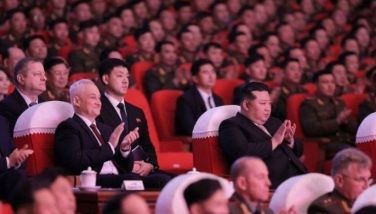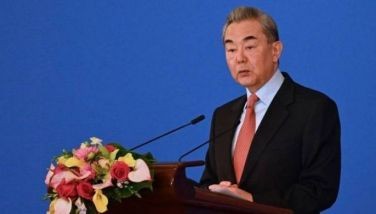Thailand's peace process with Muslim insurgents halts
BANGKOK (Xinhua) - Following continuing violence during the ceasefire agreement in Thailand's Muslim-dominated restive border provinces, an insurgent group finally said it wanted to halt the peace process.
Barisan Revolusi Nasional (BRN), the main Muslim militant group that joined the peace talks with the Thai authorities, has announced an indefinite suspension of peace dialogues with the government, Deputy Prime Minister Pracha Promnok told media on Thursday.
Under the ceasefire agreement, considered a milestone to tackle the violence which has killed more than 5,000 people, the BRN will try to reduce violence during the Muslim fasting month of Ramadan, while the Thai authorities would also refrain from any aggressive actions to avoid security problems.
The violence-free month began July 10, and would end on Aug. 18 and cover three southern border provinces of Pattani, Narathiwat and Yala and five districts of Songkhla -- Na Thawi, Sadao, Thepa, Chana and Saba Yoi.
Pracha, who is in charge of national security, said the Malaysian facilitator has conveyed the message from the BRN that the peace talks would be halted until Thailand makes a clear stance to the BRN's five-point demand earlier submitted to the Thai delegation.
The demand includes: the Thai government must accept the role of Malaysia as mediator, not just facilitator, the talks will be attended by representatives from members of Association of Southeast Asian Nations (ASEAN), the Organization of Islamic Cooperation (OIC) will be allowed to witness the talks, and Thai authority must release all detained insurgent suspects.
The National Security Council (NSC), which has led the Thai security team to the past three rounds of talks with BRN leaders in Kuala Lumpur, will call an urgent meeting with agencies in charge of strategy on southern border provinces next week to discuss the matter, Pracha said.
The deputy premier said the BRN group still stood firm that negotiations would be the best solution to the southern problem.
Without peace dialogues, the government will have to rely solely on military operations, he said, which is not beneficial to the region and could negatively impact the morale of people in the south. He insisted that peace dialogues should continue to helpl end the conflict in a manner acceptable to all parties.
Since the very first day of the peace agreement, bombing ambushes and drive-by shooting have been continuing from time to time in the violence-plagued region.
The event that triggered distrust that ended the peace agreement was the murder of Muslim religious leader Yacob Raimanee in Pattani province. However, the deputy premier said he believed other militant groups, rather than the BRN, were responsible for the crime, noting that the assassination was intended to discredit the peace talks.
More than 5,000 people have been killed and more than 9,000 injured in over 11,000 incidents, about 3.5 incidents a day, in Thailand's Muslim, ethnic-Malay dominated three southern border provinces -- Yala, Pattani, Narathiwat and four districts of Songkhla since separatist violence erupted in January 2004, according to Deep South Watch, which monitors the regional violence.
- Latest
- Trending





























